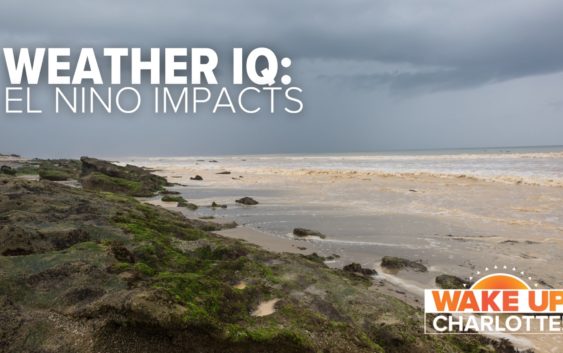- Carolina Beach is warning of potential King Tide flooding
- NCDEQ launches Hurricane Helene recovery grants program
- Why no hurricanes made landfall in the US in 2025
- Florence to begin interviewing police chief finalists in January
- A West Texas county wants to better prepare for floods. Paying for it will be tricky.
Colorado State hurricane experts now predict 'above-average' season

FLORIDA, USA — After the entire planet unofficially experienced the hottest day in recorded human history, hurricane experts are updating their predictions for the 2023 Atlantic hurricane season.
Now, we’re looking at an “above-normal” season, according to researchers with Colorado State University. That’s because sea surface temperatures are also at record-high warmth.
“We have increased our forecast and now call for an above-average Atlantic basin hurricane season in 2023, although uncertainty with this outlook is larger than normal,” researchers said in a July 6 release. “While we continue to anticipate a robust El Niño for the peak of the Atlantic hurricane season, most of the tropical and subtropical Atlantic now has record-warm sea surface temperatures.”
“The probability of U.S. major hurricane landfall is estimated to be above the long-period average,” the release continued.
So what does this mean for hurricane season? As of the July 6 update, experts now predict the following:
- 18 named storms
- 9 hurricanes
- 4 major hurricanes (Category 3 or higher)
Earlier this year, Colorado State initially predicted a slightly less-than-average hurricane season. Then, on June 1, experts amended their predictions to a “near-average” season. Now, it’s “above average.”
Back in June, the National Oceanic and Atmospheric Administration Thursday issued an El Niño advisory, announcing the arrival of the climatic condition. However, experts at the time said this El Niño may not be quite like the others.
Usually, an El Niño mutes hurricane activity in the Atlantic, giving relief to coastal areas in states from Texas to New England, Central America and the Caribbean, weary from recent record busy years. But this time, forecasters don’t see that happening, because of record hot Atlantic temperatures that would counteract the El Niño winds that normally decapitate many storms.
So far this hurricane season, we’ve had three named storms — Arlene, Bret and Cindy.